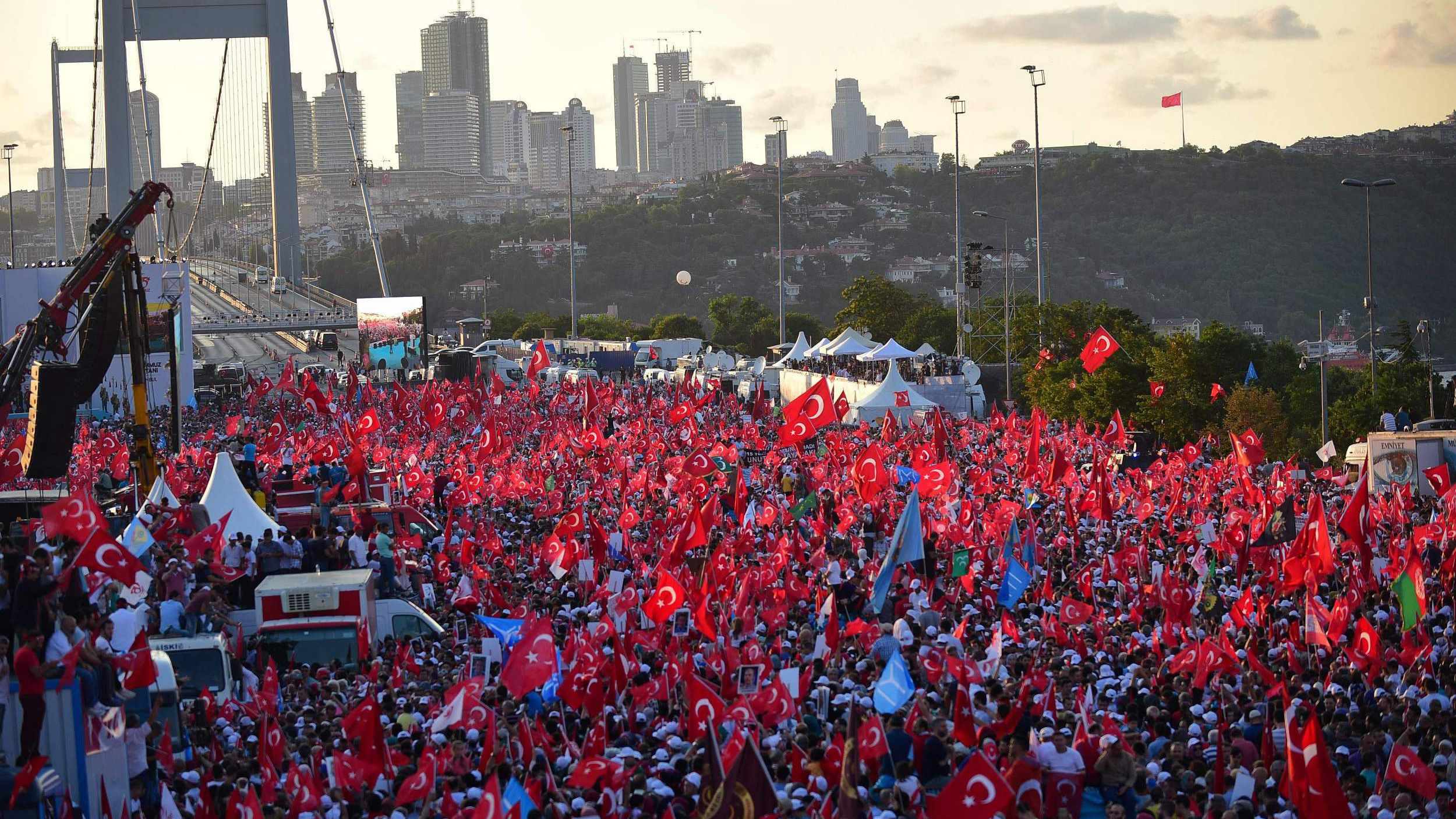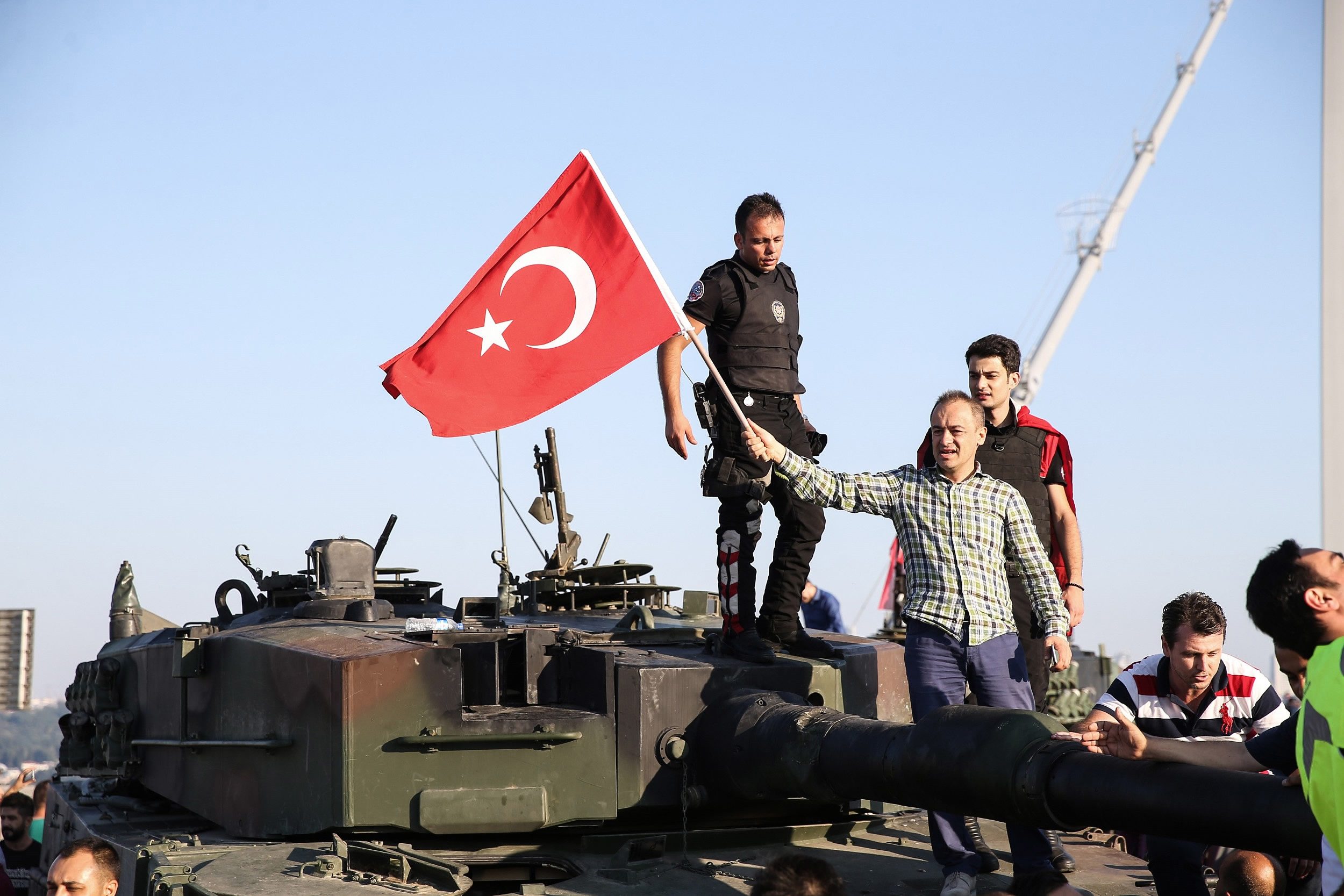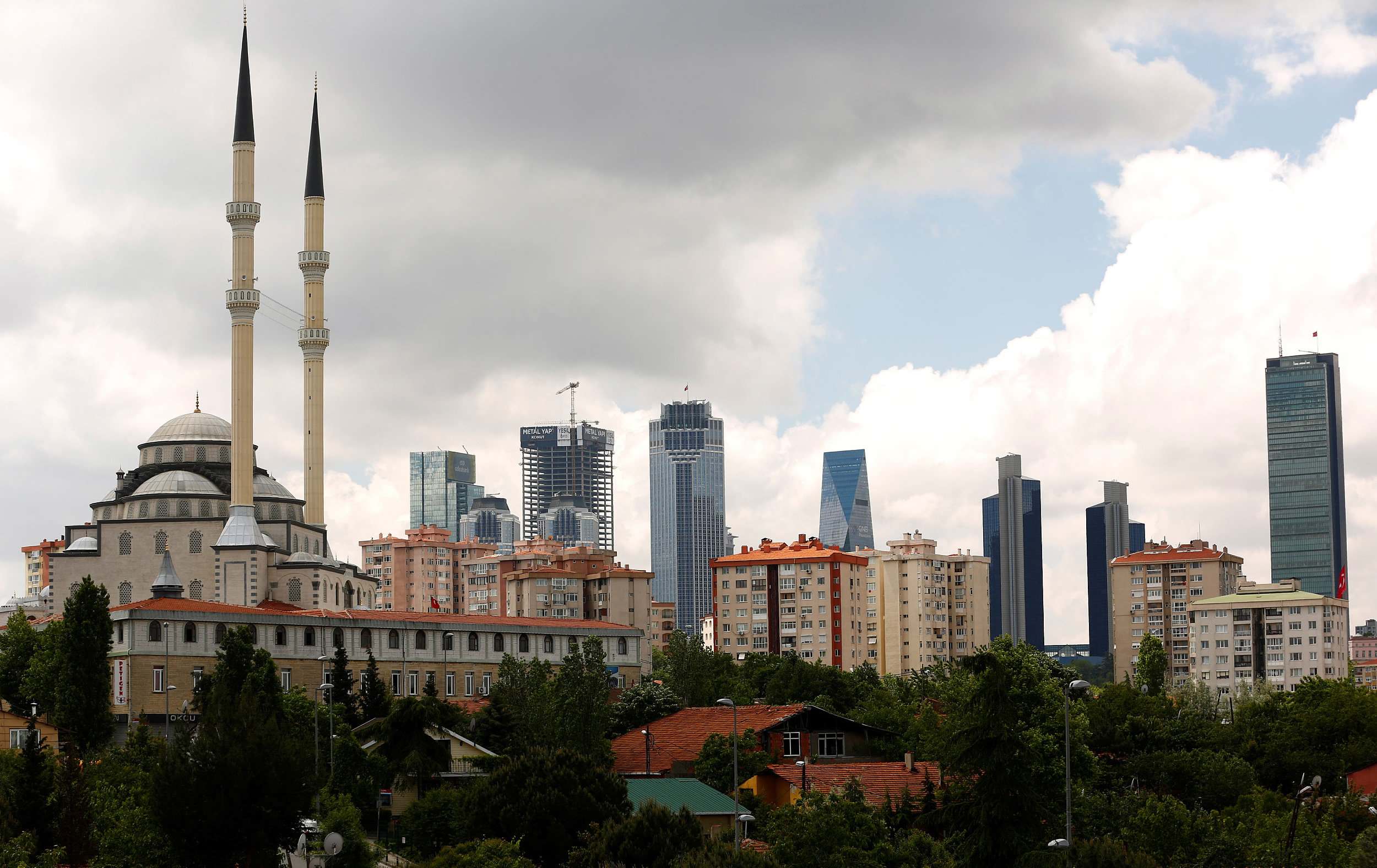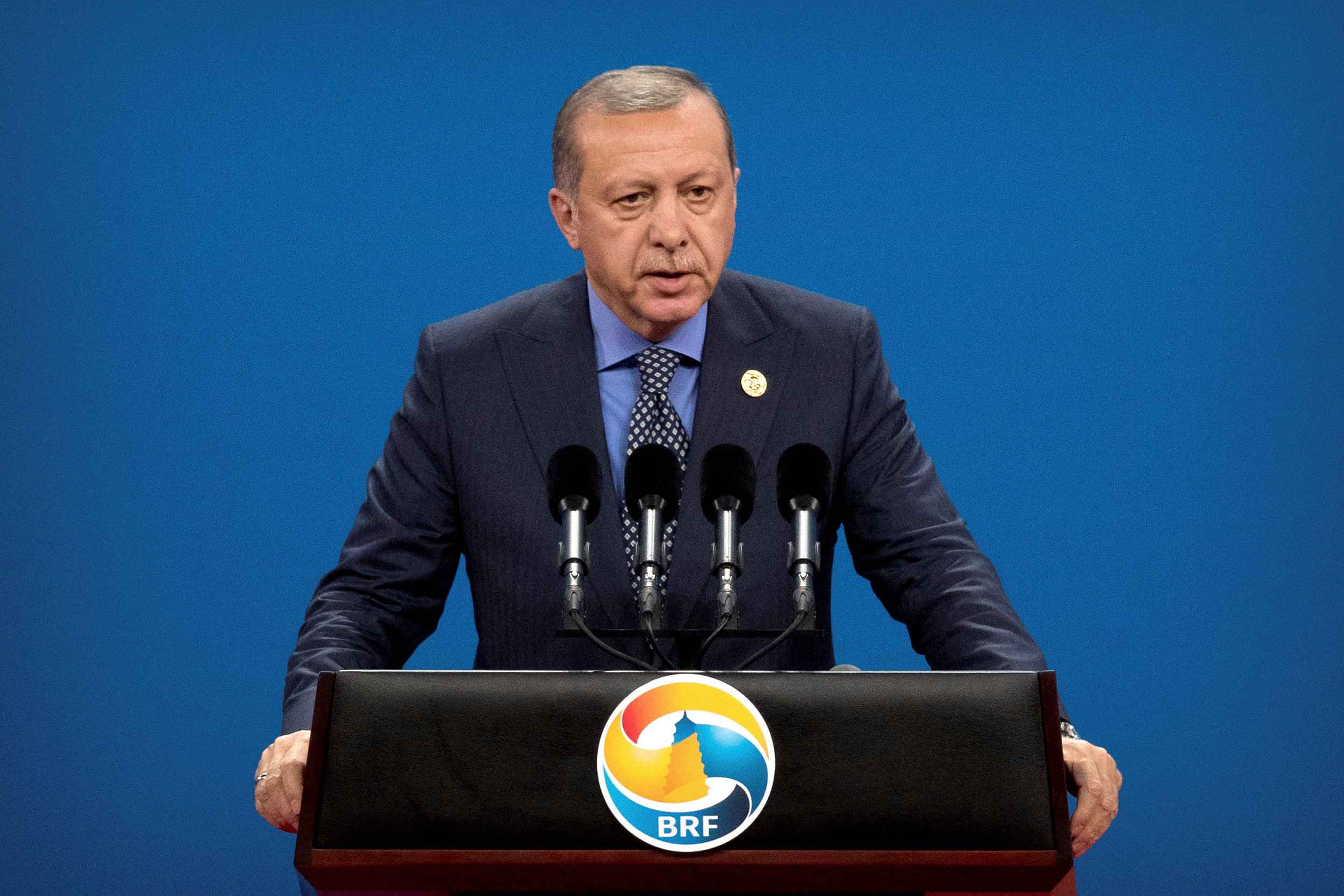
Business
13:56, 16-Jul-2017
Is Turkey's economy still suffering one year after coup attempt?

Turkey woke up to an overnight coup attempt, with gunfire, anger, and confusion in the air across the country, on July 16, 2016. Fears over instability saw Turkey’s economy and currency slump, with tourists and investors all staying away. But since then, growth has rebounded. One year on, did that night in July have a lasting effect on Turkey’s economy?
The sudden unrest that night shook global confidence in Turkey. President Recep Tayyip Erdogan was accused of using the coup attempt to consolidate power, but he may point to economic indicators in the year to show he was right to ensure political stability at all costs.

A man waves a Turkish flag on Istanbul's Bosphorus Bridge after soldiers surrender following a failed coup attempt on July 16, 2016. /VCG Photo
A man waves a Turkish flag on Istanbul's Bosphorus Bridge after soldiers surrender following a failed coup attempt on July 16, 2016. /VCG Photo
Since 2003, the country’s economy has grown at an impressive 5.6 percent GDP growth averaged over 14 years, despite the 2008 financial crisis, the war in Syria, terrorism and the failed coup. Poverty incidence halved between 2002-2012 according to the World Bank, and Turkey is expected to be the fastest growing OECD country between 2015 and 2025.
High unemployment, stagnated growth
However, cracks were already beginning to show before the coup attempt. Unemployment reached 13 percent in January this year after steadily growing since 2012, according to the Turkish Statistical Institute (TUIK).
The current OECD average unemployment rate is 5.9 percent, and the Paris-based organization does not see Turkey’s unemployment rate going below 10 percent in 2018. The World Bank says growth has slowed since 2012, and per capita income has stagnated.
However, Q1 GDP growth this year was 5.0 percent. This came after 2016 Q3 saw the Turkish economy shrink by 1.8 percent, the first contraction since 2009. Turkey’s currency fell 20 percent after July 16, and 2016 saw the tourism sector drop by 30 percent.

Istanbul's CBD district, overlooking a residential part of the city. /VCG Photo
Istanbul's CBD district, overlooking a residential part of the city. /VCG Photo
Instead of looking to its biggest trading partners in Europe – Germany, the UK, Italy and France are among Turkey’s five biggest export markets – President Erdogan has been very critical of the European Union, recently telling the BBC that the EU is “not indispensable.” That came after fierce diplomatic spats with the Netherlands and Germany over referendum campaigning for Turkish voters overseas.
What's behind the rebound in growth?
So with deteriorating ties with Europe, high unemployment and a struggling currency, how has growth rebounded after the coup?
Some observers put the rebound down to the lira’s collapse, which helped boost exports by 10.6 percent. Others have noted the possible effect of a new GDP calculation method brought in by the TUIK at the end of 2016, which uses the EU’s counting framework to judge the size of the economy.
Turkish authorities controversially reevaluated and claimed that Turkey’s economy was 20 percent larger than previously estimated. According to Al-Monitor, this new evaluation saw Turkey suddenly add 140 billion US dollars to its economy overnight.
Policies launched since the coup have seen a credit boom in the country, with 50 billion US dollars of loans guaranteed to some 300,000 businesses, according to Bloomberg.
Credit has soared 22 percent since the failed coup, with the cash injection boosting businesses that were struggling after the collapse of the lira.
Long-term plan needed beyond credit boom
Erdogan faces presidential elections in 2019 – his support base has been largely built on years of strong economic growth, and that needs to continue if he is to remain popular with voters.

People listen to the speech of Turkey's President Tayyip Erdogan during a ceremony marking the first anniversary of the attempted coup at the Bosphorus Bridge in Istanbul, Turkey, July 15, 2017. /VCG Photo
People listen to the speech of Turkey's President Tayyip Erdogan during a ceremony marking the first anniversary of the attempted coup at the Bosphorus Bridge in Istanbul, Turkey, July 15, 2017. /VCG Photo
The narrow referendum result earlier this year, which saw 48.7 percent of voters reject Erdogan’s controversial constitutional reform proposals, suggest the president’s popularity is not guaranteed.
Credit growth may stave off short-term voter concerns, but it is unsustainable in the long-term, and Erdogan needs to find methods other than credit to resolve the country’s high unemployment and inflation.
Investment from abroad will play a key role in maintaining GDP growth, but after net foreign direct investment plunged 30 percent in 2016, and amid ongoing tensions with Europe, Erdogan is looking elsewhere.
Ties with Russia are improving, but potentially most important for Turkey's economy will be ties with China, and working with the Belt and Road Initiative as part of its long term strategy.
Looking east to China
China is already Turkey’s largest source of imports, and has played a key role in infrastructure projects such as the country’s first high-speed train, which links Istanbul to the capital Ankara.

Turkey's President Recep Tayyip Erdogan speaks during the opening ceremony of the Belt and Road Forum at the China National Convention Center (CNCC) in Beijing, May 14, 2017. /VCG Photo
Turkey's President Recep Tayyip Erdogan speaks during the opening ceremony of the Belt and Road Forum at the China National Convention Center (CNCC) in Beijing, May 14, 2017. /VCG Photo
Chinese President Xi Jinping, while addressing the Belt and Road Forum in Beijing earlier this year, remarked upon how the Belt and Road Initiative would coordinate with Turkey’s own Middle Corridor Initiative.
One of the most iconic moments of last year’s failed coup attempt was the military takeover of the Bosphorus Bridge (now called the July 15 Martyrs Bridge), a link between east and west for Turkey, Europe and Asia.
The coup failed, and the bridge reopened. But it remains to be seen if, for the sake of the economy and therefore political stability, Erdogan is willing to support and maintain his country’s role as an open bridge between two continents, or if he will stick by his recent words – that Turkey can “stand on its own two feet.”
7057km

SITEMAP
Copyright © 2018 CGTN. Beijing ICP prepared NO.16065310-3
Copyright © 2018 CGTN. Beijing ICP prepared NO.16065310-3